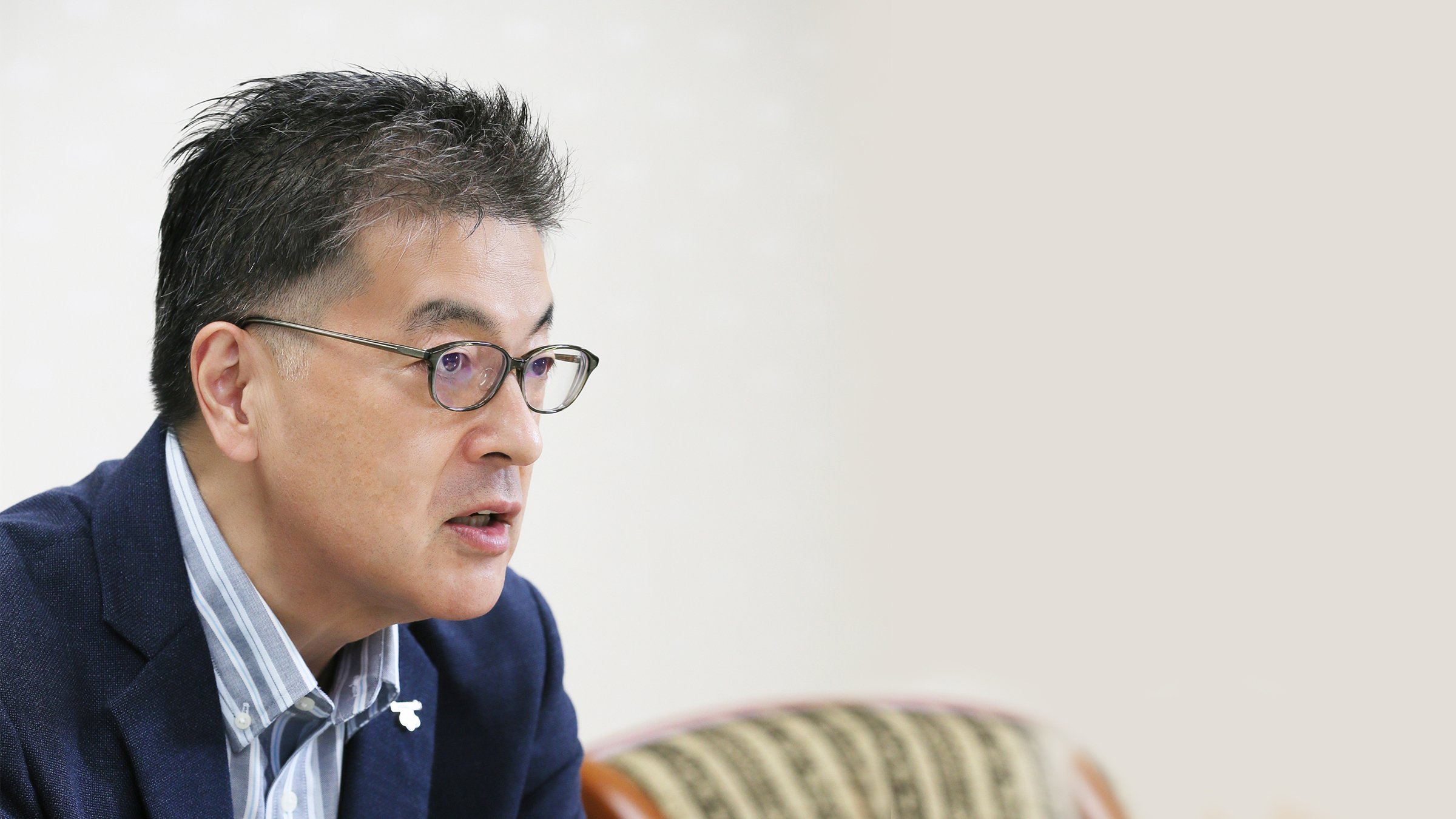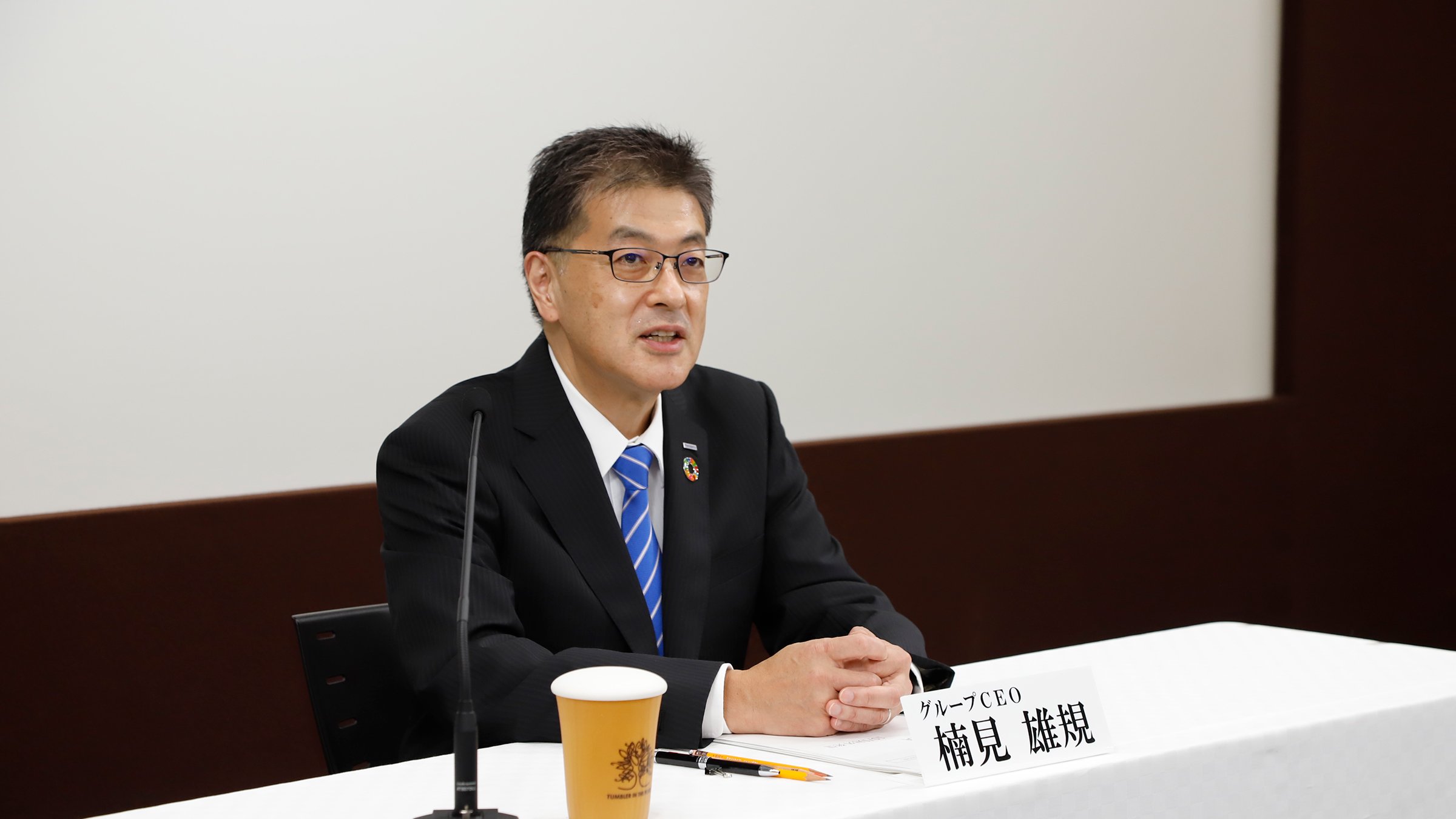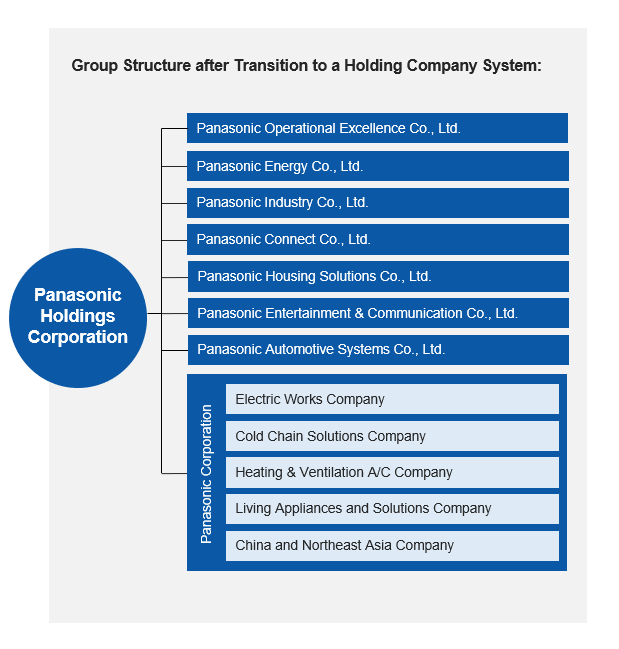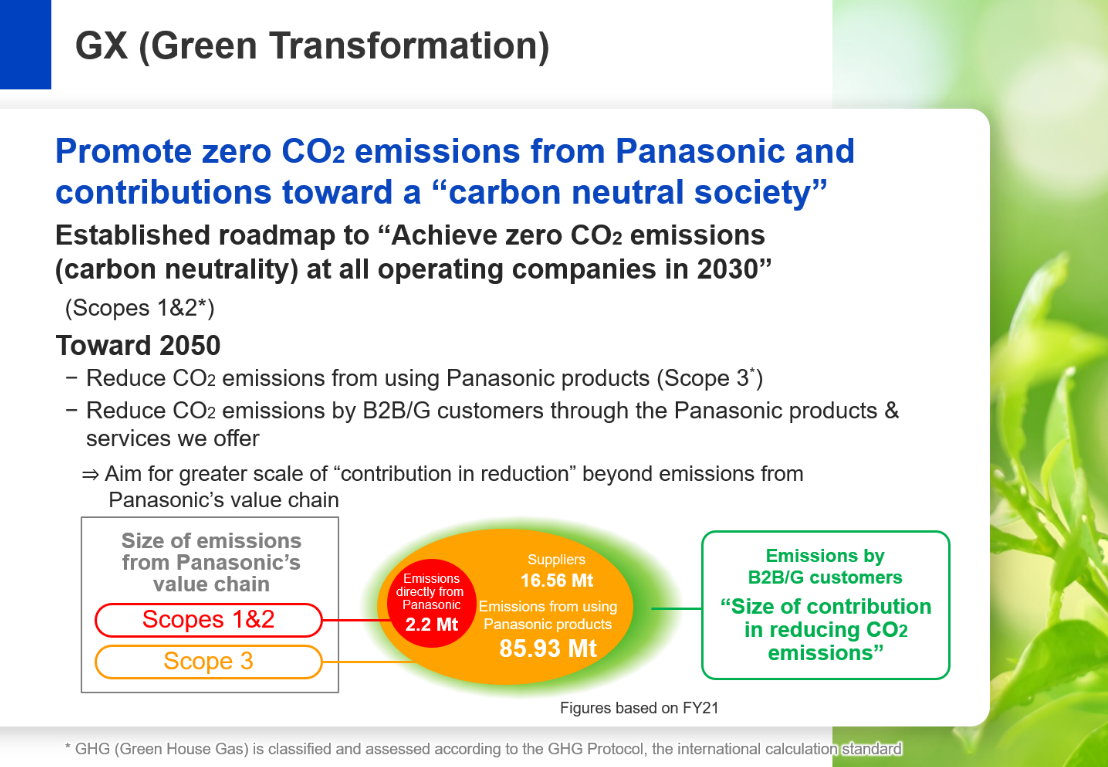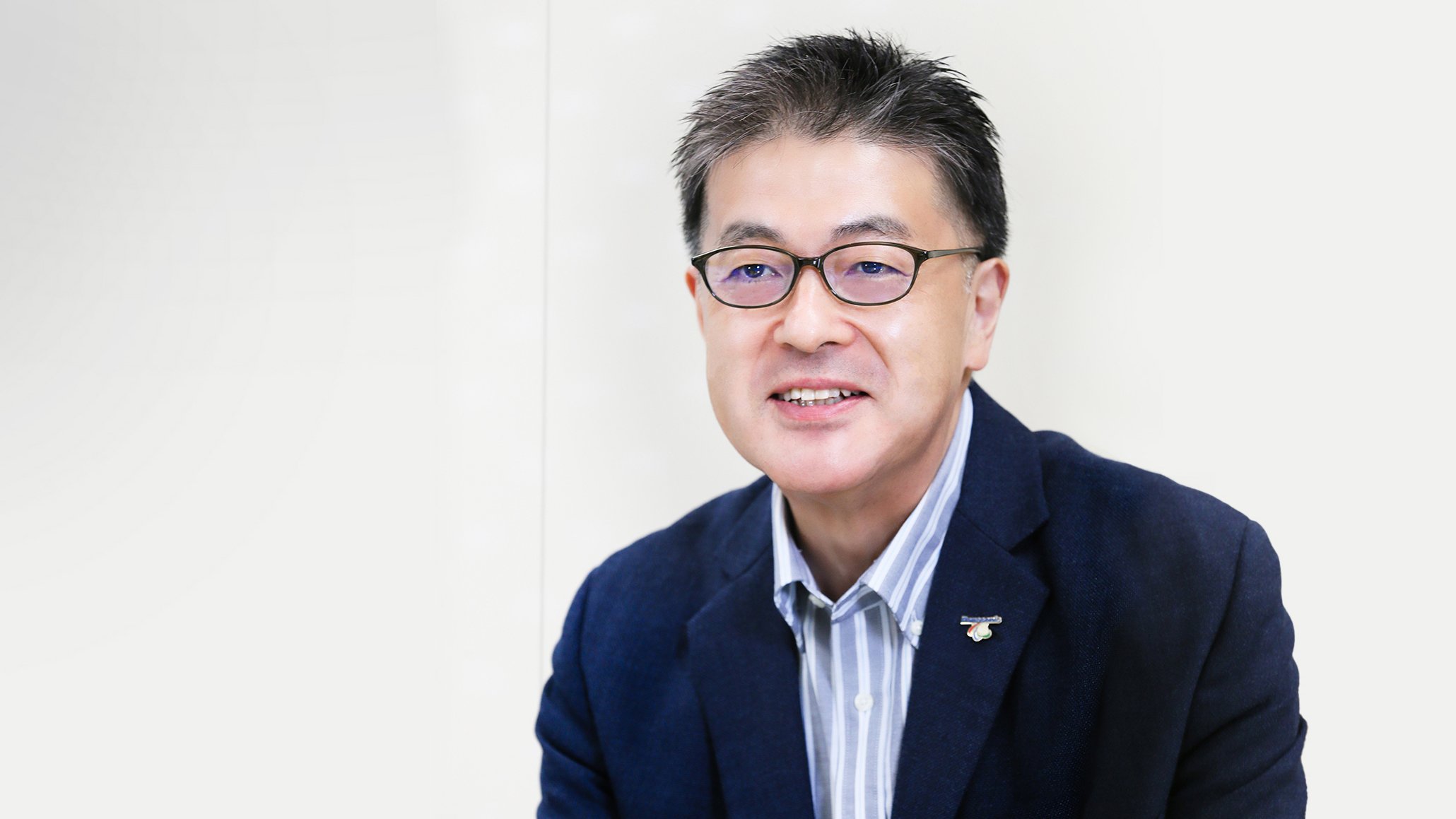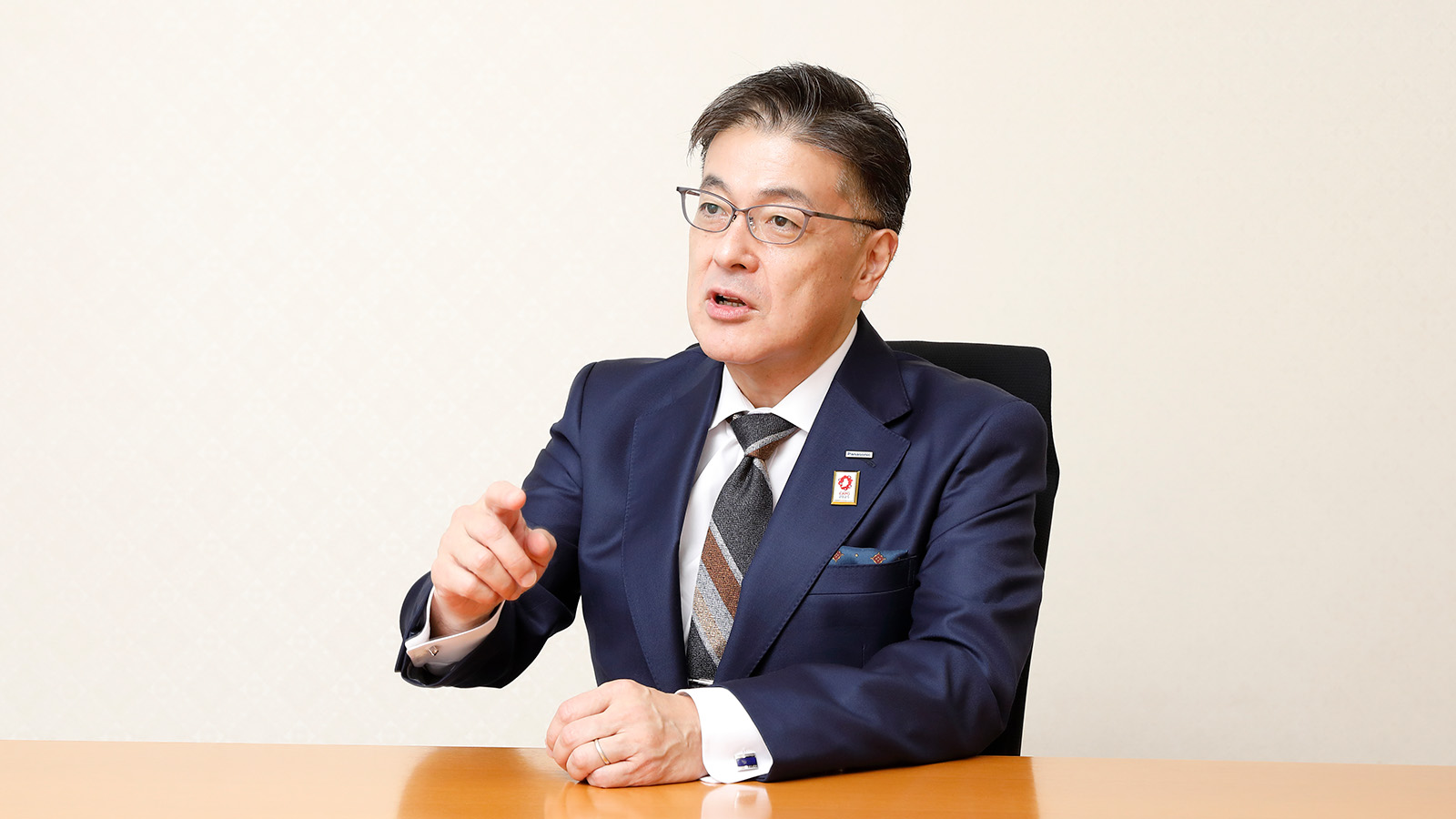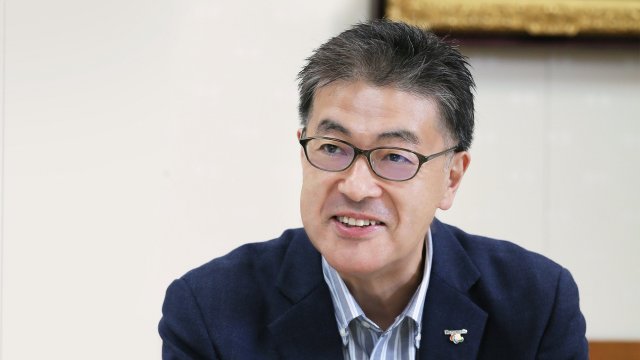
To prepare the way for its transition to a holding company in April 2022, the Panasonic Group introduced a new structure on October 1, 2021. We asked Yuki Kusumi, Group CEO, the steps Panasonic is taking to enhance its competitiveness and contribution to society and the future direction of management.
The Basic Business Philosophy has been revised for the first time in 60 years. Why is this an important milestone for Panasonic?
The Basic Business Philosophy refers to the management philosophy established by Konosuke Matsushita, founder of the Panasonic Group, and the basic approach to putting this philosophy into practice. Key elements of the business philosophy are the Basic Management Objective, Company Creed and Seven Principles. In the days of our founder, the Basic Business Philosophy was thoroughly enforced throughout the company, but as time passed and in the wake of his departure, enforcement gradually weakened. So where does that leave us today? Well, the way I see it, aren't we just setting short-term numerical targets based solely on Panasonic's perspective and simply debating whether we can achieve them or not? If that's the case, we're never going to be able to improve our competitiveness.
I saw the inauguration of the new organization this month as the perfect opportunity to remind each and every Group employee that they are expected not just to understand the Basic Business Philosophy, but to reflect it in everything they do. At the same time, I had to admit that many of the expressions in the original Basic Business Philosophy could only be understood in the context of the era in which it was drafted. If today's employees were going to be asked to read, grasp and implement its contents, then it had to be updated with a modern interpretation that aligns with today's social environment and conventions. So I joined the team responsible for updating the Basic Business Philosophy and decided to make some major revisions.
I focused on a single, critical phrase: "We will become unrivaled in accomplishing valued work." These are the words of former board chair Arataro Takahashi, and I have returned to them because I believe they are the key to enhancing the competitiveness of the Panasonic Group. Achieving this requires "autonomous responsible management," "employee entrepreneurship," fostering a sense of "independent responsibility" in each individual, "all-employee management through collective wisdom" and a "culture in which everyone can speak freely" - all elements that I consider indispensable for effective management. We also need to commit to "eradication of waste, delay and rework." All of these were possible in the past, and I hope that each and every employee - including younger colleagues unfamiliar with the old days - will put them into practice and implement them in their daily work.
We've also published the revised Basic Business Philosophy on our corporate website to share it with anyone who has an interest in our company. As the Panasonic Group, we are committed to practicing the Basic Business Philosophy, and we will strive to ensure that the actions of each and every employee - myself included - continue to live up to the expectations of our many and varied external stakeholders.
How did you come up with the concept of "management with a 10-year horizon"?
At the October 1st media session, we laid out the social and environmental issues that each of the businesses under Panasonic Holdings should address, and explained that our policy would be to prepare a 10-year vision and then work back from that vision to determine what needed to be done to achieve it.
In the past, we based our management strategies on an annual business plan and a three-year mid-term plan. We still need to keep an eye on short-term business performance and need to rapidly respond to short-term competition in what we have traditionally thought of as a three-year time frame. However, if we manage from that perspective alone, everything we do will be grounded in the present, and that's a cause for concern since it will make it difficult to respond to the longer-term changes taking place. In fact, if you look back over the past decade, it's abundantly clear that significant change has taken place.
Every business manager remains responsible for sales and profits during their term of office. But the point is to create a foundation that will allow the business to continue to grow when the baton is passed to their successor. If the usual term of office is five years, then - logically - we need to look ten years into the future to lay that foundation.
I believe that Panasonic Holdings (HD) should look even further into the future and focus on strengthening the management base of the entire Group from a longer-term perspective - that is, a 25-year plan that comprises one section of the 250-year plan set forth by our founder. In principle, the operating companies are responsible for their own activities, while the role of HD is to carefully determine the measures to be taken to develop the Group and then implement them.
Why did you emphasize your desire to dedicate the next two years to "strengthening competitiveness"?
In May, when I outlined the Group's direction at a press conference, I announced that we would focus on strengthening our competitiveness over a period of two years. But I think some people misunderstood what I meant, and took it to mean that we would spend the next 24 months sifting through our businesses. Let me take a moment to correct any misunderstanding. We must thoroughly improve competitiveness across all of our businesses. To do this we will need each business to draft a 10-year vision and then work back from that goal to identify those aspects that are useful and competitive.
We will no longer use expressions such as "priority areas" or "core businesses." The value of our businesses lies in our capacity to do excellent work that is second to none, to continually improve our ability to be the choice of customers, and to continue to demonstrate our usefulness to both customers and society. As long as we maintain this capacity for excellence, each of our businesses - regardless of size - is unique to Panasonic and, as such, is valuable to the Group.
In the future, investment decision-making will be transferred to the operating companies, and the operating companies themselves will take the initiative in promoting activities designed to achieve the social and environmental benefits to which each company aspires. If an activity exceeds the scope of a particular operating company, then HD can assume a decision-making role. In such cases, HD will not make decisions based on whether or not it is a "priority" business; rather, we will firmly invest in what is necessary to strengthen our competitiveness in order to contribute to society.
What progress is being made toward "resolving environmental issues"?
Green Transformation - or "GX" - is one of the Group's key initiatives for strengthening our competitiveness.
We firmly believe that environmental response is a necessary condition for business continuity. In fact, this commitment should be a given for any company because as a "social entity" society entrusts us with human resources and capital. The impact of climate change is already becoming apparent, so we must proceed without delay.
We have already established roadmaps for each of our businesses regarding emissions classified as Scope 1 and 2 under the GHG Protocol, and we are firmly committed to achieving our goal of virtually zero CO2 emissions for all operating companies by 2030. In the area of Scope 3, which accounts for 40 times more CO2 than Scopes 1 and 2, we will further accelerate our efforts to reduce CO2 emissions by our customers and society.
The Panasonic Group's products are used by more than one billion customers worldwide every day. The power consumed by these products accounts for approximately 86 million tons of CO2 annually. This is proof that we are deeply integrated into the lives of our customers and, at the same time, equally responsible for reducing these emissions.
We are proactively working to promote greater energy efficiency for individual products, but these efforts alone will not completely eliminate CO2 emissions. Therefore, we will also accelerate our "avoided emissions" as defined by the International Electrotechnical Commission (IEC). Specifically, we will propose various products and solutions to B2B and B2G customers that will help reduce CO2 emissions. Our intention is to contribute to the reduction of CO2 emissions by 2050 on a scale that exceeds our own emissions.
In this area, we are involved in a wide variety of businesses. In addition to solutions that combine various products from within Panasonic, we believe that Blue Yonder - a recent addition to the Group - can also be expected to make a significant contribution to reducing environmental impact by improving the efficiency of supply chain management activities. The more each business thoroughly enhances its competitiveness in this area and the more it contributes to its customers, the closer it will be to achieving a carbon-neutral future.
What is the goal of the newly announced "Panasonic Transformation"?
The term "Panasonic Transformation" - or "PX" - is symbolic of the strong determination with which we intend to not just improve our IT infrastructure, but to position IT at the core of our management strategy and utilize IT to trigger major changes in our business and management.
I believe that supporting the digital transformation of each business and collectively raising the level of IT across the entire Group are among the most urgent issues for our company today. At present, unfortunately, many areas are behind the times, and I have long felt that it is essential to strengthen these aspects.
In a world of drastic change, we need to flexibly change the numbers we focus on and our work processes. In this sense, our aim should be to reach the point where we can adapt to changes in the environment and evolve with grace and purpose. We want to be making appropriate and timely management decisions while enhancing our competitiveness by eliminating waste, backlogs and rework.
What can you tell us about your expectations for DEI, the management concept of "fostering and maximizing the potential of human resources"?
To increase our competitiveness, each and every one of us must practice "employee entrepreneurship" with a sense of "autonomous responsibility." As an organization, we must foster a climate in which colleagues "can speak freely" and in which we can gather and apply "collective wisdom." This is precisely what it means to "foster and maximize the potential of human resources."
Our company was once regarded as a leader that "fosters and maximizes the potential of human resources," as symbolized by the introduction of a two-day workweek, but the honest truth is that today we are learning from other companies. Increasing our competitiveness demands that we firmly establish a foundation that allows each and every employee to fully demonstrate their individuality and abilities as they take on challenges in their respective business domains.
The promotion of Diversity, Equity & Inclusion - or "DEI" - is part of our effort to realize such a foundation as soon as possible. We must not only draw out the power of the valuable human resources entrusted to us by society, but also make sure that they can take on challenges, grow and play active roles in the organization. The increased emphasis on "Equity" is an expression of our commitment to making sure that everyone who wants to challenge themselves and demonstrate their abilities has an equal opportunity to do so.
I am convinced that there is endless opportunity for the Group to grow if each and every one of our employees can enhance their knowledge, improve their abilities and take on new challenges. It is the "people," in other words, the individual employees, who drive the company. In the words of our founder, Konosuke Matsushita, "Before you make things, you make people." Fostering a corporate culture in which individuals can continue to evolve, and using this as a driving force to develop a truly formidable competitive edge, we will realize a Panasonic Group that is widely useful to society.
# # #
Disclaimer:
We would like to note that Panasonic Newsroom is not a place to address personal Customer Service issues. Even though this is not the forum, Panasonic is always eager to resolve your concerns. Our local customer services contacts can be found at Global Support or you can see our list of Social Media Accounts to find the right channel for your queries and concerns.
Related News
- [Press Release] Panasonic Announces Group's New Structure and Personnel Changes on Executive Officers and Others Effective October 1, 2021 (Jul 29, 2021)
- Commitment to Environment Core Pillar of Panasonic Business Strategy (Jun 21, 2021)
- [Press Release] Panasonic Accelerates the Autonomous Supply Chain with Acquisition of Blue Yonder (Apr 23, 2021)

